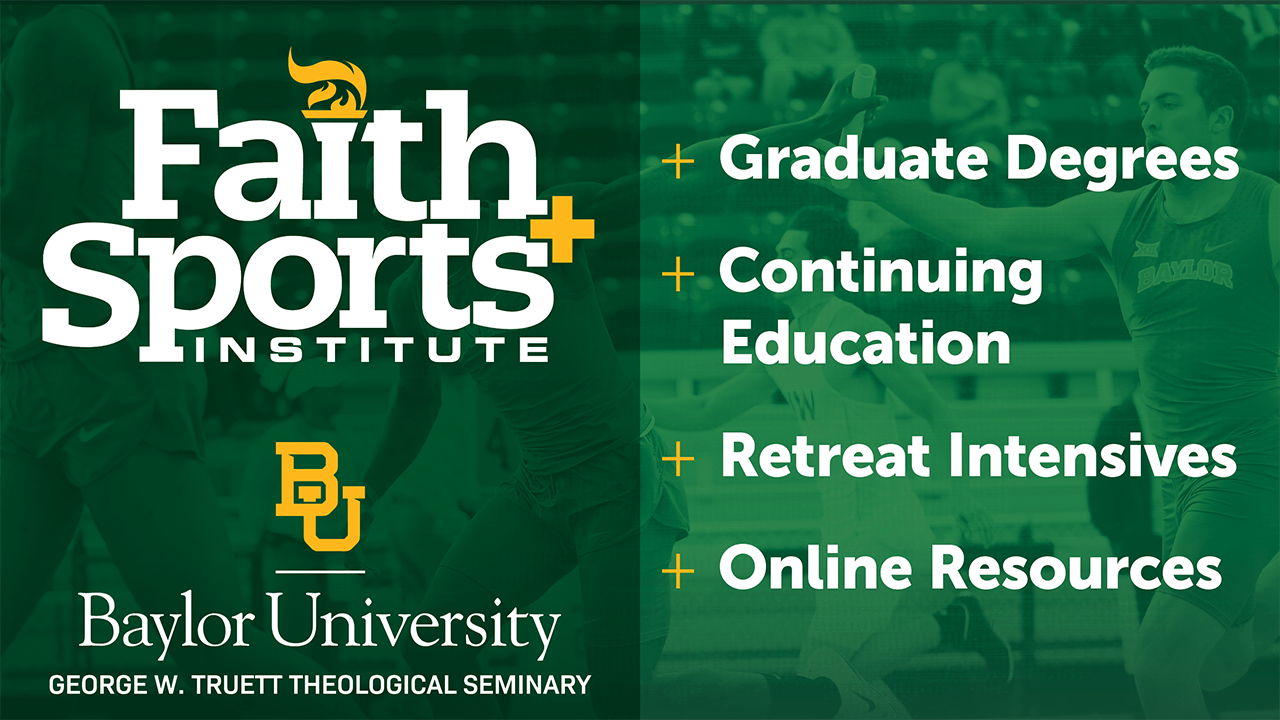
Editor’s Note: Tracy Hanson is a former professional golfer and is the founder of The Tracy Hanson Initiative, which aims to provide safe opportunities for elite athletes to talk about trauma, as well as training to those who serve them. After reading this post, if you’d like to hear more about Tracy’s story check out her podcast interviews with Sport Faith Life or The Pursuit of Gold. Please note that the following essay includes reference to topics some readers may find triggering, including sexual assault.
Tracy Hanson
My heart pounded and my lungs gasped for air. The brown conference room blurred as I watched the chairs fill. But I carried on. I stammered through my testimony: How I used to attach my identity to my sports performance, how Jesus helped me find my true identity in Him, and how Jesus was changing my life.
The choir’s hallelujahs from behind betrayed the shadows lurking in my heart.
I shared my testimony out of obligation that evening, a requirement in my leadership discipleship program. I would do the same countless times in the decades ahead, spurred on, like so many other successful Christian athletes, by the high demand to hear our testimonies. While my desire to share about Jesus was real, what I didn’t realize at the time was that my quick ascent to the Christian athlete platform would come at a cost, limiting the healthy growth and development of my faith.
Before becoming a Christian, I managed my world through shame-based performance. I felt the weight of expectations, real and perceived, as a stand-out athlete in North Idaho. Golf paid my way to college, which in turn opened the path to the LPGA Tour. How I felt about myself moved with the ups and downs of my performance.
My Christian faith was supposed to fix all of that—or at least that’s the message I would preach. I became a Christian while literally in the car driving myself to San Jose State University for my freshman year. A year later I got connected with campus ministries that helped me develop a more grounded sense of self as I learned the essential disciplines of Bible study, prayer, quiet time, and attending church.
But then I shared with a leader about a “relationship” that had gone bad. I was encouraged to quickly move past it and to seek forgiveness, and was pointed to this verse: “Therefore, if anyone is in Christ, he is a new creation. The old has passed away; behold, the new has come” (2 Corinthians 5:17 ESV).
I desperately needed to be seen that day, but I was missed. I needed help understanding my new faith as it collided with my hidden pain. Instead, I felt I had to hide it, all of it. So out I would go, standing on a stage telling people that Jesus freed me from the grind of performance-based identity. Meanwhile my tendency towards finding my self-worth through performance had merely expanded to doing and saying the right things—but now as a Christian golfer.
When we ask Christian athletes to get on a platform and proclaim their faith in Jesus without providing them the time, space, and care they need to truly process their stories, we are setting them up for what theologian Dietrich Bonhoeffer called “cheap grace.” Here’s how he described it in The Cost of Discipleship:
Cheap grace is the grace we bestow on ourselves. Cheap grace is the preaching of forgiveness without requiring repentance, baptism without church discipline, communion without confession…Cheap grace is grace without discipleship, grace without the cross, grace without Jesus Christ, living and incarnate.
Cheap grace offers survival over vulnerability; it ends in futility instead of true compassion and kindness.
Thankfully, God uses broken people (me) and I did have seasons when my faith grew. But I also fooled both myself and those who gave me a platform to share my faith. I loved Jesus, but my heart was distant and dying. I was on the treadmill of success but didn’t have control of the speed at which I was running. I couldn’t stop because I had to keep achieving—keep saying and doing the right things—to keep my façade intact.
My façade, my cheap grace, left me believing that as a Christian professional athlete I had to present my most cleaned-up version of myself. I believed talking about my pain, shame, and emptiness would not reflect well for Jesus. I was hiding in plain sight. I was a successful Christian athlete and I often felt like a fraud.
For 20 years I used performance to suppress the pain and shame that weighed me down like a wet blanket. My push for excellence was twisted with doubt and anxiety. Thankfully, God’s grace never stopped pursuing me. But it took stepping away from my golf career to finally realize I needed help.
With the time and space to process and reflect, I was able to face my façade and seek a new path of healing. Counseling helped me understand that the “relationship” that had gone bad was sexual abuse and that it wasn’t my fault. I started to see how shame and performance created a web of cheap grace that I used to hide my heart. My faith began to flourish when I decided to expose my story. It was messy and difficult, but it was where I started to experience real grace.
It’s also where I began to understand 2 Corinthians 5:17—“The old has passed away; behold, the new has come”—in a new light. The verse is not calling on us to quickly paper over our past hurts, pains, and traumas. It’s not asking us to claim a cheap and easy grace, as if our old selves have no bearing on how we think, act, and feel in the present. Instead, it’s a promise that we are being renewed and changed from broken to healed by the Spirit of God. This promise, this new identity, is strengthened in those ongoing moments when our stories are witnessed by another person who listens, validates, and responds with kindness and empathy.
To lead well in sports ministry, I believe we need to see athletes less as influencers who can sell the Christian faith, and instead see them first and foremost as human beings who carry stories of hurt and shame. No matter how confident they may seem or act, Christian athletes need time to grow in their faith, to talk about and process the good and bad things experienced in sport, and to feel loved for who they are.
If we truly want to help athletes escape the burden of a performance-based identity, let’s be careful that we do not replace one burden for another. Let’s keep athletes from feeling pressured to perform as Christian athletes, and give them complete freedom as to when, how, and if they step on a platform and share about Jesus.
Most importantly, let’s embrace costly grace, engaging with the difficult truths of our own stories so that we can help the athletes we serve do the same.*
*NOTE: An important part of creating a safe space for athletes and others to share their stories is to realize our limitations. Sports ministry leaders should be quick to encourage athletes to seek professional counseling when it’s needed and we should model that by doing so ourselves, particularly if we have experienced abuse (physical, emotional, sexual) and past trauma. Rachael Denhollander provided some helpful resources and perspective on this in a conversation last year.
 About the author: Tracy Hanson played collegiate golf at San Jose State University where she won 11 individual titles and an NCAA Team Championship. After graduating with a BS in Human Performance, Tracy went on to play 16 years professionally before retiring from the LPGA Tour in 2009. She has traveled 11 times to the Holy Land as a Biblical Study Trip facilitator, has worked as a Brain Assessment Specialist, and is Lay Counselor certified through The Allender Center. As a result of her own counseling and healing journey, Tracy founded The Tracy Hanson Initiative to provide safe opportunities for elite athletes to talk about trauma, and training to those who serve them. She is also a member of the Team of Advocates for the Faith & Sports Institute.
About the author: Tracy Hanson played collegiate golf at San Jose State University where she won 11 individual titles and an NCAA Team Championship. After graduating with a BS in Human Performance, Tracy went on to play 16 years professionally before retiring from the LPGA Tour in 2009. She has traveled 11 times to the Holy Land as a Biblical Study Trip facilitator, has worked as a Brain Assessment Specialist, and is Lay Counselor certified through The Allender Center. As a result of her own counseling and healing journey, Tracy founded The Tracy Hanson Initiative to provide safe opportunities for elite athletes to talk about trauma, and training to those who serve them. She is also a member of the Team of Advocates for the Faith & Sports Institute.





